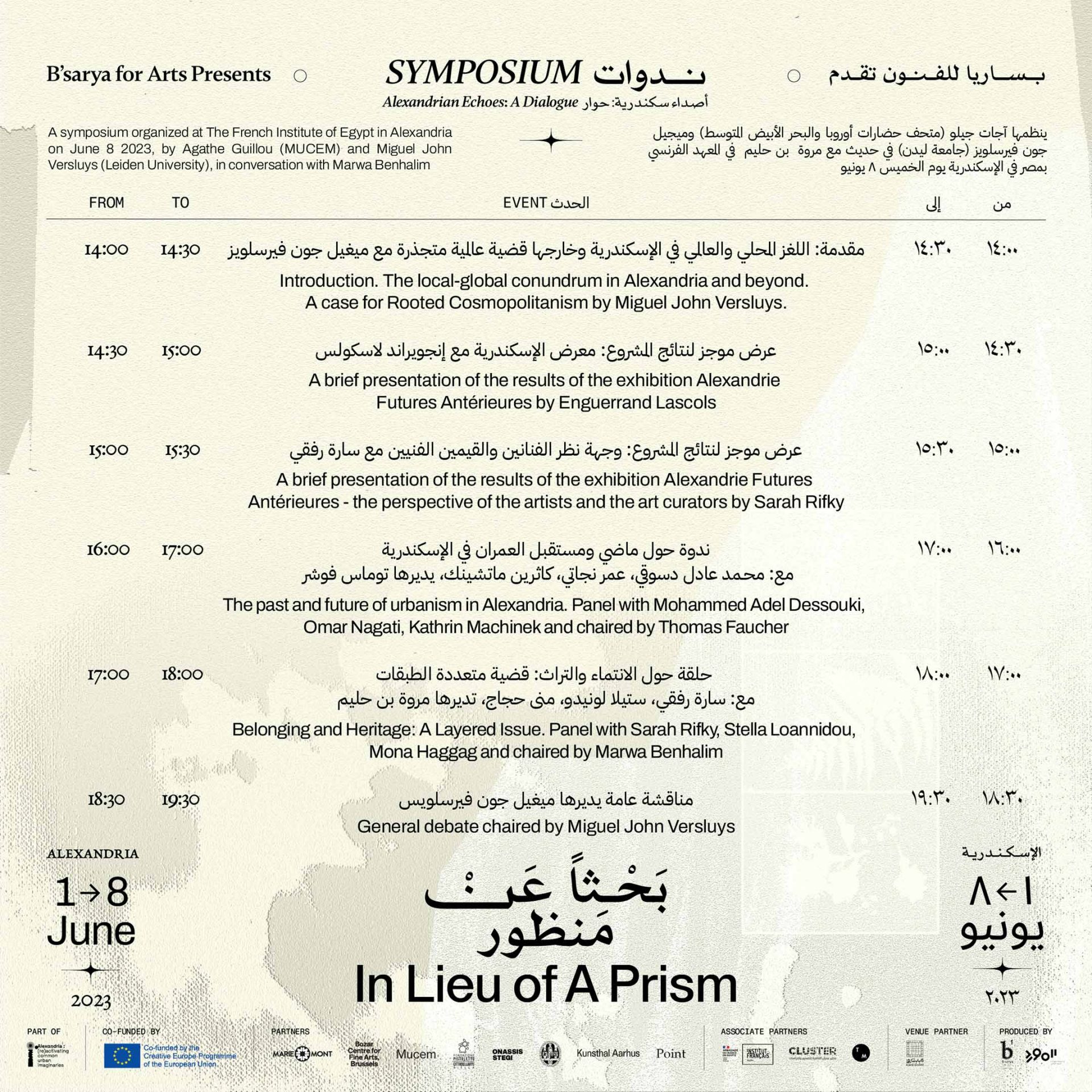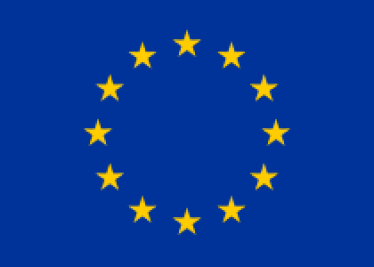Alexandrian Echoes: A dialogue
Symposium organized at the Institut français d’Egypte à Alexandrie, June 8 2023, by Leiden University, Mucem and Marwa Benhalim.

Registration for the Symposium on the 8th of June : click here
The ambition of the project “Alexandria: (re)activating common urban imaginaries” was to
‘think with Alexandria’ in order to create new ideas at the intersection of heritage,
cultural innovation and the development of (Mediterranean and European)
metropoleis. To this end it fostered a cooperation between historical and archaeological
scholars on the one hand as well as artists and social entrepreneurs on the other. This
resulted in scientific conferences, a caravan with residencies and showcases; and an
exhibition that ambitiously combined history with art in order to better understand the
image and reality of the city of Alexandria.
Alexandria proved to be an excellent tool to think about relations between past, present
and future; and in particular, perhaps, to identify the colonial and postcolonial
frameworks at play with our mnemohistorical (re)constructions. But where does this
leave the presence and future of the city itself?
This symposium aims to bring the project back to Alexandria itself and to engage in a
critical dialogue. Alexandria resonates strongly throughout Mediterranean history until
the present-day, but what about the echoes of Alexandria, and this project, in the
contemporary Egyptian city? To what extent has it been successful in (re)activating
Alexandria’s urban imaginary? What does it bring for Alexandria’s future?
To engage in this dialogue, which we would like to distinctly frame as local-global
interplay (in terms of Rooted Cosmopolitanism that is) first the results of the project
will briefly be presented from both a scholarly perspective and from the point of view of
the art curators. Thereafter, two major interpretative issues as they emerged from our
work will be discussed in both a theoretical way as well as an applied manner. We will
do so in two panels. First, we will discuss the relation between past, present and future
and the possibility of arriving at a different future by looking at the past. Is this feasible?
And how could such an exercise work out for the urbanism of Alexandria in particular?
Second, the relation between the cosmopolitan nature of our past (always global) and
the identity politics of Cultural Heritage (mostly local) will be discused. Can concepts
like Rooted Cosmopolitanism help to resolve this tension? And to whom does
Alexandria actually belong in terms of Heritage and how can the various answers to this
question be translated in museum policy and display?
Thereafter, the dialogue will be open to all participants, including the audience





